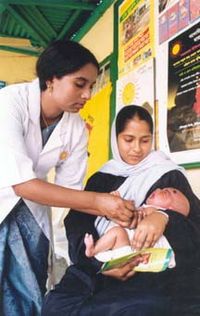Baby Eucalyptus Specialty Wreath 18"




Months in season
| Jan | Feb | Mar | Apr | May | Jun |
| Jul | Aug | Sep | Oct | Nov | Dec |
Summary
An infant (from the Latin word infans, meaning "unable to speak" or "speechless") is the more formal or specialised synonym for "baby", the very young offspring of a human. The term may also be used to refer to juveniles of other organisms.
A newborn is, in colloquial use, an infant who is only ...
summary via wikipedia
Baby Eucalyptus Specialty Wreath 18" data for nerds
Below is a live look at how Baby Eucalyptus Specialty Wreath 18" flowers are used in floral estimates by Lobiloo users.
Baby Eucalyptus Specialty Wreath 18"'s popularity last 12 months
Utility of this flower in recent floral estimates
Loading...
Baby Eucalyptus Specialty Wreath 18"'s inclusion by total price of event
*Detect if this flower is better suited for lower vs higher budget productions
Loading...
Baby Eucalyptus Specialty Wreath 18" wholesale pricing and regionality
Learn whether the Baby Eucalyptus Specialty Wreath 18" is popular in , and if you're paying the right amount.
Baby Eucalyptus Specialty Wreath 18"'s popularity by state
*Last 90 Days
Loading...
Baby Eucalyptus Specialty Wreath 18"'s recent wholesale prices
*Bell curve, represents average price per stem for a given % of florists
Loading...
